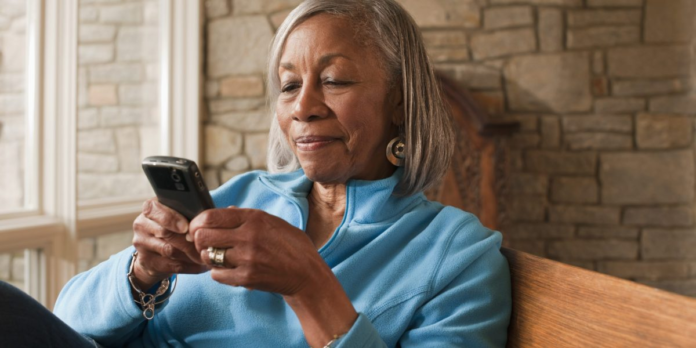For seniors and others with chronic health conditions, daily obstacles may get in the way of staying on top of their health, in part due to managing a myriad of prescriptions along with the memory lapses that come with aging.
Co-founders Dr. Renee Dua and Nick Desai wanted to make it easier for seniors and those diagnosed with chronic conditions to handle daily health tasks by creating the first AI and human combined personal health assistant, which launched this week. The health assistant, named after co-founder Renee who has cared for a loved one herself, can schedule appointments, book transportation to and from appointments, have prescriptions delivered, remind the patient to take medications, and find specialists—helping those most vulnerable get personalized whole health care, something that can benefit the entire family unit, the founders tell Fortune.
In the app, you can find doctors that match your insurance, and be reminded about taking pills. Courtesy of Renee
“All of us want to have this peace of mind that the people we love have access to, frankly, what should be theirs,” Dua says. “It shouldn’t be that you didn’t make it to the doctor because you didn’t have a ride or you didn’t pick up your medication because it wasn’t approved.”
To use Renee, you sign up on their website and have a 45-minute one-on-one consultation with a health concierge, who will take all of your health information, including insurance, medications, conditions, health goals, and social determinants of health including fall risk, food insecurity and language barriers. After this, patients can use the service to schedule appointments, including requesting at-home or virtual care, be reminded to take medications and order them with a few clicks. All of this information shows up on the service’s dashboard, which can be accessed using a phone or computer. The service partners with ride-share companies to provide transportation to and from appointments and the founders say they are planning to incorporate food-delivery services beyond their initial launch as well as an application for smartphones. All services are paid by the user, or the insurance plan, Desai says.
The platform has a chat service monitored by an individual who can help in case of emergency or if the patient feels they need a mental health provider immediately, for example.
“There’s a human being behind the system at all times,” Desai says.
In a 90-day clinical trial involving hundreds of seniors with an average age of 73 who had on average 3.8 chronic conditions, 92% used the assistant over five times a week, and the participants were able to adopt and use an average of 1.8 digital health tools, increasing their chance to improve their health at home. The patient satisfaction NetPromoter score (which ranges from 0-100) was +89 over the trial period and +94 for those with caregivers. Blood pressure improved in 68% of patients and 63% of type 2 diabetic patients improved A1C (a blood test measuring blood sugar level) in 90 days. Following this trial, the app went through the US Department of Health and Human Services PandemicX and the American Association of Retired Persons (AARP) age-tech accelerator program, which provided focus groups, advisers, and potential investors to better the product, after which the product raised over $8.2 million.
“If you take your medicines everyday, if you track your vitals, if you see your doctor regularly, your health will get better,” Desai says. “Those most basic things are the things that are keeping most chronic patients and most seniors from achieving better health outcomes,” noting how seniors in particular may be prescribed a medication and then find it’s out of stock at the pharmacy and forget to follow up and go back to the store. Others may forget to routinely take their medications or follow up with specialists for appointments.
This technology comes as 42% of older adults take five or more prescription medications a day, according to the Lown Institute, a significant leap compared to two decades ago. Only about half of people in the U.S. take their medications as prescribed, with some research saying that number is even lower among seniors, many of whom have more pills to juggle. About 20% of those 65 and over report not taking a medication as prescribed due to cost, according to a poll from the Kaiser Family Foundation. Failing to adhere to medication directions properly is estimated to lead to 125,000 deaths a year. Further, living with a chronic condition not only poses significant health costs but indirect costs stemming from “reduced economic productivity.”
Dua and Desai aim to bridge this technological gap to make care easier and more efficient for older people who are at a higher risk for developing chronic conditions. For those over 50, less than one in three use digital health apps at all, according to a poll from the University of Michigan Institute for Healthcare Policy and Innovation. Still, research from the AARP notes that those over 50 are increasingly interested in using technology to better manage their health.
“The idea that older Americans are not tech-savvy enough to adopt digital health is a folly,” says Desai, in the press release of Renee. “The issue isn’t the seniors. It’s the tech … If a patient has diabetes, hypertension and heart health issues, are they supposed to sign up for three disconnected services that are not interoperable with each other? No one wants that.”
The delivery of medications is free in most cases with the service, which costs $24.99 per month; the service is waiving the $99.99 activation fee for the rest of 2022.




